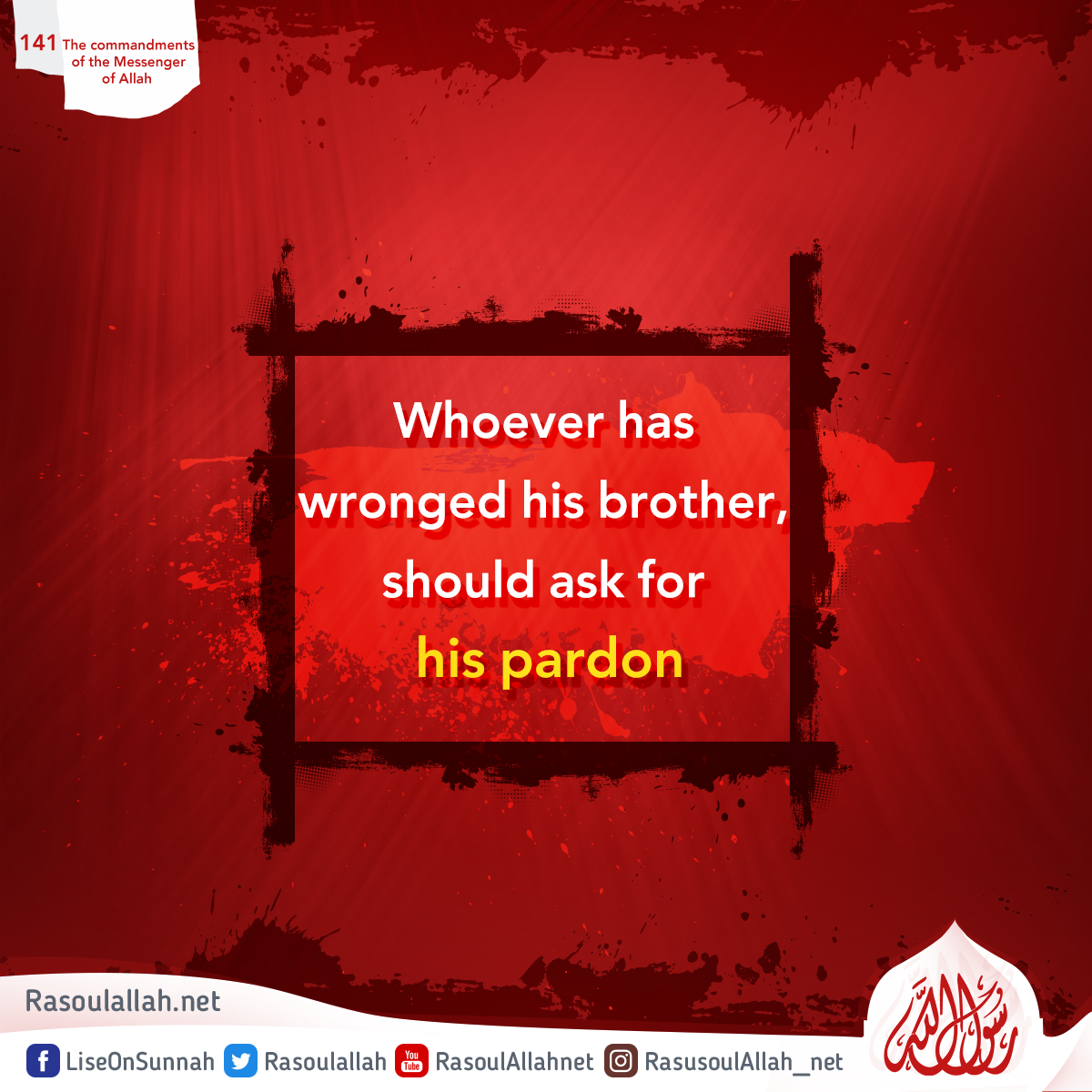Whoever has wronged his brother, should ask for his pardon

Narrated Abu Huraira may Allah be pleased with him:
Allah's Messenger (may the peace and blessings of Allah be upon him) said, "Whoever has wronged his brother, should ask for his pardon (before his death), as (in the Hereafter) there will be neither a Dinar nor a Dirham. (He should secure pardon in this life) before some of his good deeds are taken and paid to his brother, or, if he has done no good deeds, some of the bad deeds of his brother are taken to be loaded on him (in the Hereafter).
This commandment appears as if it is a farewell advice that carries things of concern, which man may forget them; for being distant from Allah, and for being attached to the worldly life and following his self inclination.
One of these things is the sincere brotherhood between the believers; the relevant rights that must be performed, the ethics that should be observed, and the sanctities must be preserved.
Including justice among Muslims and non-Muslims; knowledge of the bases on which they are based, and how to apply them optimally; in order to stabilize security and spread peace throughout the country among the slaves.
Such as that if a person wronged his brother, he must apologize to him, and return to him his rights if he managed to do so. Or ask his brother to kindly pardon him.
Injustice in the Arabic language: is to put the thing in the wrong place, which is the sense of prevention or lack.
It is called injustice for it resembles darkness, because it covers the facts and waste the rights.
There are two types of injustice:
A physical injustice related to the money, properties and so on.
A moral injustice related to the honors, sanctities and public morals which guarantee for each person the right of respect freedom, and so on; these rights must be observed.

